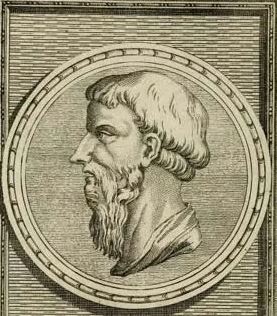Anacharsis was a Scythian philosopher, traveler, and one of the most intriguing figures of the ancient world. Though his exact dates of birth and death remain unclear, he lived around the 6th century BCE and is often remembered for his sharp wit, wisdom, and cultural exchange between the nomadic Scythians and the more urbanized Greeks. He is often associated with the Seven Sages of Greece, though not originally Greek himself.
This article will explore the life of Anacharsis, his contributions to philosophy, his interactions with the Greek world, and how his legacy continues to fascinate scholars and history enthusiasts.
Early Life and Background of Anacharsis
Anacharsis was born into the Scythian culture, a nomadic group known for its pastoral lifestyle, horsemanship, and warrior skills. The Scythians were based in the steppes of Central Asia and southern Russia. Despite coming from this relatively nomadic and isolated background, Anacharsis was drawn to the intellectual vibrancy of the Greek world, eventually traveling to Athens to learn and exchange ideas with its great thinkers.
Though the historical details of his early life are scant, it is widely accepted that he was of noble birth. This status likely facilitated his journey to Greece, where he encountered a vastly different culture and society.
Anacharsis and His Philosophical Journey
Anacharsis is best known for his philosophical contributions. He was profoundly influenced by the ideas of the Greek philosophers he encountered. Despite being a foreigner, Anacharsis managed to earn the respect of Greek intellectual circles, especially for his sharp, practical mind.
Much of what we know about Anacharsis comes from later Greek writers like Herodotus, Plutarch, and Diogenes Laërtius. According to these sources, Anacharsis was a curious and inquisitive mind. He questioned the excesses of the Greek lifestyle, particularly their tendency toward luxury and complexity. His own philosophy was grounded in simplicity and pragmatism, which resonated with the basic, austere lifestyle of the Scythians.
Anacharsis is often credited with saying, “The vine bears three kinds of fruit: wine, drunkenness, and outrage.” This quote reflects his critical view of excess, particularly in matters of indulgence.
Anacharsis and Solon
Perhaps the most famous story about Anacharsis is his friendship with Solon, the legendary Athenian lawmaker and one of the Seven Sages of Greece. Solon and Anacharsis are said to have had deep conversations on matters of governance, society, and ethics.
According to legend, Anacharsis marveled at the Athenian legal system and asked Solon how laws could prevent wrongdoing. Solon famously replied that laws are like spider webs, catching only the weak while the strong break through them. Anacharsis, in turn, suggested that the laws needed reform to ensure they applied to everyone equally.
While it is unclear how much of this tale is rooted in fact versus legend, it illustrates Anacharsis’ keen understanding of social issues and governance. His insights, though stemming from a foreign culture, held great value to Greek thinkers of the time.

Contributions to Greek Culture and Thought
Anacharsis’ time in Greece had a lasting impact on both Greek and Scythian cultures. Despite being a foreigner, he contributed to discussions on morality, governance, and social structure. His Scythian background also introduced Greeks to the customs and philosophies of nomadic societies, which contrasted with the urbanized and structured nature of Greek life.
One of Anacharsis’ supposed contributions is the invention or improvement of the potter’s wheel and the ancient anchor, though these claims are debated by historians. These innovations reflect his practical mindset and interest in simple but effective solutions to everyday problems.
Anacharsis’ Legacy: A Foreign Sage in a Greek World
Anacharsis’ legacy endures largely because he represented the notion of the “noble foreigner”, a man who, though from a different and less-developed culture by Greek standards, was able to understand and contribute to Greek intellectual life.
His unique position as an outsider within Greek society has made him a subject of intrigue for historians and philosophers. His life reflects the idea that wisdom is not confined to any one culture or nation, and that intellectual exchange between different peoples can lead to great insights.
Death of Anacharsis
The exact circumstances of Anacharsis’ death are murky and debated. One account suggests that after returning to Scythia, Anacharsis was killed by his own people. The reasons for his death vary, but it is commonly believed that his exposure to Greek customs and ideas made him a target for those who viewed him as having betrayed his own culture.
This tragic end highlights the potential dangers of cross-cultural interactions in the ancient world. However, it also solidified Anacharsis’ legacy as a martyr for intellectual exchange and open-mindedness.
Anacharsis in Literature and Modern Perception
Anacharsis has appeared in various works of literature and philosophy, often as a symbol of wisdom, simplicity, and the ideal of the “philosopher-king.” His life and ideas have inspired countless thinkers throughout history. In the 18th century, Jean-Jacques Barthélemy, a French writer, even penned a fictional account of Anacharsis’ travels in Greece, further popularizing his legend.
Modern historians view Anacharsis as a bridge between the nomadic, warrior culture of the Scythians and the intellectual, democratic society of ancient Greece. His life serves as a reminder that even in the ancient world, ideas could cross borders and cultures, enriching societies through mutual understanding.
Anacharsis was a unique figure who bridged the gap between two vastly different worlds: the nomadic Scythians and the intellectual Greeks. His philosophical contributions, sharp observations, and his deep friendship with Solon place him among the notable figures of ancient history. Though he lived centuries ago, his legacy continues to remind us of the value of open-mindedness, cultural exchange, and the pursuit of wisdom.
In an age where borders and cultures are more fluid than ever, the story of Anacharsis remains relevant. It serves as a testament to the idea that great minds can rise from any background, and that wisdom knows no boundaries.




